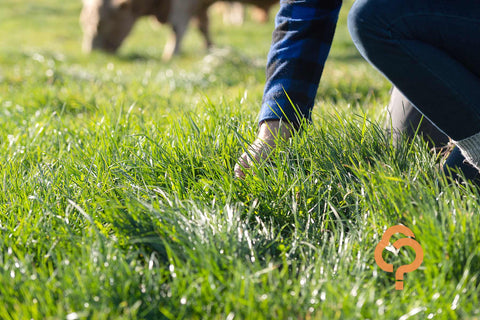For flexibility in your spring nutrients, you can’t beat this reliable fertiliser. We provide answers to some commonly asked questions about Superphosphate and why it remains the go-to option for pastoral agriculture.
What makes Superphosphate such a good option for both dairy and sheep and beef customers?
As a base fertiliser for pasture and clover production in dairy and hill country, Superphosphate (Super) has been popular for many years. It has a good combination of nutrients for New Zealand conditions, including phosphate (P) sulphur (S) and calcium (Ca). Applying P and S to grow clover is the basis of our pastoral agricultural system.
Why are many customers moving back to using Super over other alternatives?
There's a general recognition that as we work with regulatory restrictions like the N-190 cap, then we need to maximise the amount of N fixed by clovers. While there’s nothing wrong with encouraging pasture production with nitrogen, this must be combined with getting the best out of clovers and ensuring that naturally produced nitrogen is entering into the system. Clover also has the benefit of improving the nutritional quality of pasture. Super, or potash super for dairy farms, has always been the premium product for achieving that, as Super in combination with potash encourages healthy clover growth.
How can Super offer better flexibility in our pastoral systems than alternative products such as di-ammonium phosphate (DAP)?
While DAP is a good fertiliser, if you're applying DAP for P then it can create a timing issue with the N component. Having N in the product means that you need to carefully consider the timing of application to get the best response rate for pasture. This requires some forethought in terms of weather conditions and soil temperatures. Alternatively, splitting apart the Super applications from the N applications will give you greater flexibility and ensure that you are using N in the most strategic way possible.
Given our environmental regulations, it’s also important to avoid putting on N If you don't need it. There's a saying that the N in DAP is free. However, it can have an economic or environmental cost particularly if it is not being used at the optimum time. Operating under an N-190 cap means that you will also want to use nitrogen as efficiently as possible while not exceeding the limit.
How about sulphur applications?
When it comes to S, it’s important to make sure you are comparing apples with apples. In Super, the S is all immediately available as sulphate-sulphur which is important for spring growth. With DAP there's a tendency to use sulphur-90 which is a slow-release form, available over a 12-month period. However, it’s not the same product therefore it won’t give the immediate results sulphate-sulphur will when S is required.
Is there a difference between Superphosphate and DAP when it comes to ground spreading?
Often farmers will spread their own high-analysis fertiliser only to discover that they don’t have enough to complete the job. This is because it’s difficult to accurately spread fertiliser at lower rates. In this type of situation, it is often better to use a fertiliser that has more bulk to it and is easier to spread.
What about aerial spreading?
For many farms, nitrogen on hill country can be hard to manage. If it’s not done correctly, pasture quality can be lost. DAP can be more effective for some farmers who aerial spread as it has a high concentration of nutrients and has homogeneous prills - meaning that it spreads well.
What about when it comes to adding other things into your fertiliser mix, such as clover seed?
If you want to put other products into fertiliser, a good option is to mix it with Super. The reason for this is that Super granules come in a range of sizes which supports better mixing and less chance of the mix separating.
What about when it comes to weighing up pricing?
For most dairy farms that are being spread by truck, Super mixes will be very competitive price wise. On the face of it, straight DAP may seem like a cheaper option. However, once you start blending other things into it, such as S, then the price can increase.
What else can Super offer in terms of flexibility?
There are a good range of Super products that offer other nutrients, such as Serpentine Super (super and magnesium), the Sulphur Super range, the Potash Super range. Trace elements are something that should always be considered as they can be easily added to Super using products like Selenium Super and Molybdenum Super. Soil testing can also help match your nutrient and trace element requirements to specific Super products that can easily be made up to meet your requirements.

